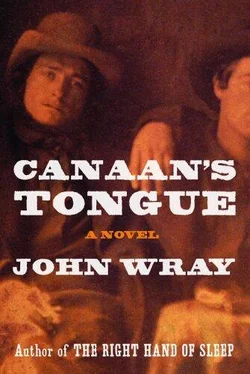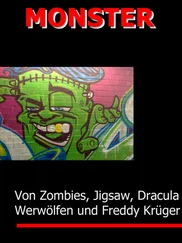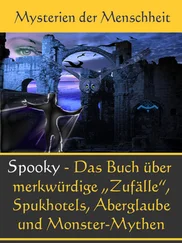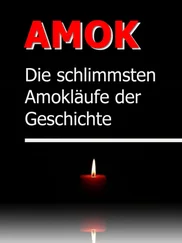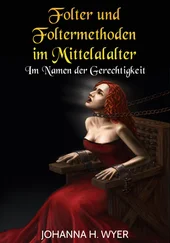“I’ll be your Dante, Virgil!” Trist said, giggling into his hand. His eyes were back on mine, and they were lucid again—; he looked at me fondly for a time, then gave me a coquettish wink.
I decided, with all the force of desperation, that he’d simply been playing me for a fool. He was less an hysteric or a madman than a molly-coddled planter’s son—: he had to be. The alternative — at that moment, and in that place — was impossible to consider.
“No time for the classics just now, Asa, I’m afraid.” We’d halted at the crossing of Jefferson and Main. I looked back at the coffles, to see if any of the head were watching us—: all of them were, closely and intently.
“Take out your pistol, Asa,” I said quietly.
I smiled as I said it, hoping to give our audience the impression of business-as-usual. But even as Trist returned my smile — uncertainly, as though he were hard of hearing — the wistful look began to bloom again behind his features.
“No-one gets shot today, Captain!” he said, holding up his hands.
The change I saw gathering in his eyes was more frightening than the corpses in the street, than the coffle behind us, or even than the Yellowjack itself. I found myself gazing over Trist’s shoulder, unable to return his stare, desperate for something else to look at. On the far side of Jefferson Street three school-boys were smashing the windows of a rice-and-grain-depot—: their tools were a U.S. Army bugle, a dressmaker’s dummy, and the leg of a snow-white pianoforte.
“Give me that pistol, Asa,” I said, forcing my eyes back to his. “Where is it?”
A scrap of sobriety returned to him then—: his smile slid to the right and disappeared, like the moon on the face of a clock. “Is it — is it not in the case?” he stuttered, pushing the words across his tongue as if they were clots of dirt. No sooner had he said this, however, than both his eyes went perfectly blank—: I saw the pupils flare a final time, spasm, then seemingly vanish altogether.
This is the end of me, I thought, watching Trist sink to his knees. The Colonel had described his fits to me once — with obvious discomfort — and Kennedy had gleefully filled in the specifics. I prayed that the fifty-five niggers behind me hadn’t heard tell of them—; but it made not a whit of difference. What was happening to Trist was plain for all to see.
He gave a side-long jerk of the head, as though shooing away a fly, then set the hat-box down and undid its clasps. Keeping my good eye fixed on the coffles, I motioned to him to throw it open, thinking I might find his pistol there. The coffles still stood more or less in file—: only the first ten or fifteen head could see what he was about. I wondered how much longer they would bide. Not long, by the look of them. I’d just resolved to get them moving again, to make one last push to Pop Stacey’s, when Trist got the hat-box open and I stopped thinking about the Stacey, the coffles, and the entire city of Memphis altogether.
Packed together in the box’s velour-lined recesses, in neat, Linnaean rows, were vials and bottles of every conceivable color and description. Some were old kölnisch-water bottles—; others had once contained balms, perhaps, or menthe liqueurs. Each of them now held a dram of yellow fluid with a neatly cut square of what I first took to be oil-cloth suspended within it. Trist’s pistol was nowhere to be seen, but that was trivial to me now. The box had already yielded up its secret.
The squares were samples of skin — of human skin, to be precise— in every imaginable shade of brown.
I closed my eyes a moment. “Listen to me, Asa. You get that collection of yours as far away from here as you can. We can’t let the coffles see it. Do you follow me?”
But Trist was already on his feet.
“In the beginning America was quiet!” he announced to the coffles. “There was this quiet, children! It was very black!”
For a moment all was still. Then — mutedly at first, but with greater and greater vigor — the coffles commenced to laugh. Soon they were all but rolling on the ground.
The interior of the box was, as yet, hidden from their view.
“There were fine white women of savory looks,” Trist continued. “They were good dollies of the river escaped up from the water, and they went down to the cellar and upset casks of lemon-punch, and drank to the river-maid, and got well and rightly liquored, and were sent by force to strip quite naked, and farts occurred and many, many wets! And all sang in joy to their favorite of hymns—: ‘Fill to the rim that which stitches the bed—; fill to the quim that which bitches the dead. That which bitches and foals!’” Trist cried, laughing along with the coffles now. “‘Dearest Elohim! Amen!’”
Then he curtsied to them all.
With the end of Trist’s speech the laughter died down somewhat, and a weak and abject wheezing could be heard. It was the better part of a minute before I recognized it as my own. There was no way on heaven or earth to hold them now. Trist was standing with his arms akimbo and an earnest, benevolent expression on his face—: the learned speaker pausing to collect his thoughts. I stood slumped over beside the hat-box, fingering Ziba’s pistol, which lay heavy in my pocket. It brought me precious little comfort.
The coffles, which ten minutes before had been the very picture of despair, now waited good-naturedly for Trist to resume his lecture. Even the boys from the depot had broken off their fun to listen.
Trist, however, appeared to have concluded.
A few blocks south of us, on Shelby Street, the roof of a burning store-house began to buckle. I felt keenly, in that egregious silence, how thin the tissue is that separates this life from the next. The sensation, while it lasted, was a pleasant one—: I felt the satisfaction one might get from looking down onto two converging valleys from the ridge of land between. A cold comfort, granted—; but a comfort nonetheless. The gentle satisfaction of perspective.
Taking advantage of this charmed moment, I kicked the hat-box shut, turned back to Trist, and struck him hard across the temple with the butt of Ziba’s pistol. He turned toward me as he fell, the smile still hovering about his mouth, and hit the ground with a wallop that brought me a distinctly different satisfaction. An appreciative “Ah!” rose up from the coffles. Incredibly, all fifty-five head still stood rooted to the spot. It occurred to me, then, that we were only three streets removed from Stacey’s—; I might yet, by some miracle, manage to complete the run. I made an elaborate show of cocking the pistol, realized the lameness of this gesture at once, then let the gun fall slackly to my hip. I accompanied this action, if I remember rightly, with a quiet warble of defeat.
For perhaps ten seconds the coffles studied me carefully, as if committing my face to memory. Then — all in the same instant, as though in answer to a bugle — they about-faced and shuffled back the way we’d come. I raised the pistol in the air and shook it at them forlornly. I might as well have been brandishing a feather-duster.
I looked down at Trist, at the hat-box beside him, then over at the rice-and-grain depot. The boys had vanished without a trace. Memphis looked as desolate, and very near as ruined, as its Egyptian namesake. I returned the pistol to my pocket, gave the hat-box a punt that sent its varicolored bottles flying, then walked the last three blocks to Stacey’s clearing-house, leaving poor barmy Asa to his fate.
LITTLE WAS KNOWN about the Yellowjack, other than that it traveled through the air on tiny motes of dust, something like a jockey—; niggers got it less than white folks did, and Indians got it less than niggers. To stave it off, men dined on cloves of garlic chased with creosote, or swallowed chips of pulverized house-brick, or poured granulated strychnine down their boots. In Natchez-on-the-Hill, the time-honored custom was to fire a brace of cannon at a forty-degree angle into any and all suspicious-looking clouds. Not surprisingly, none of these prophylactics proved reliable, and soon everything short of suicide was being indulged in. Nothing short of suicide, however, ever truly seemed to turn the trick.
Читать дальше
